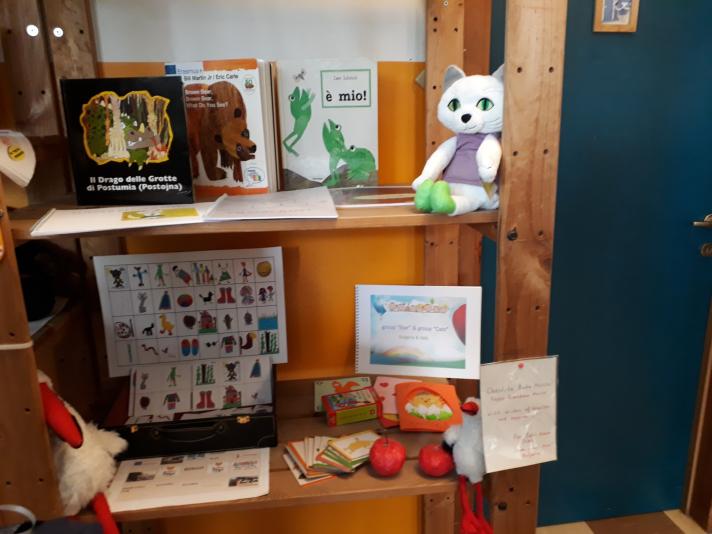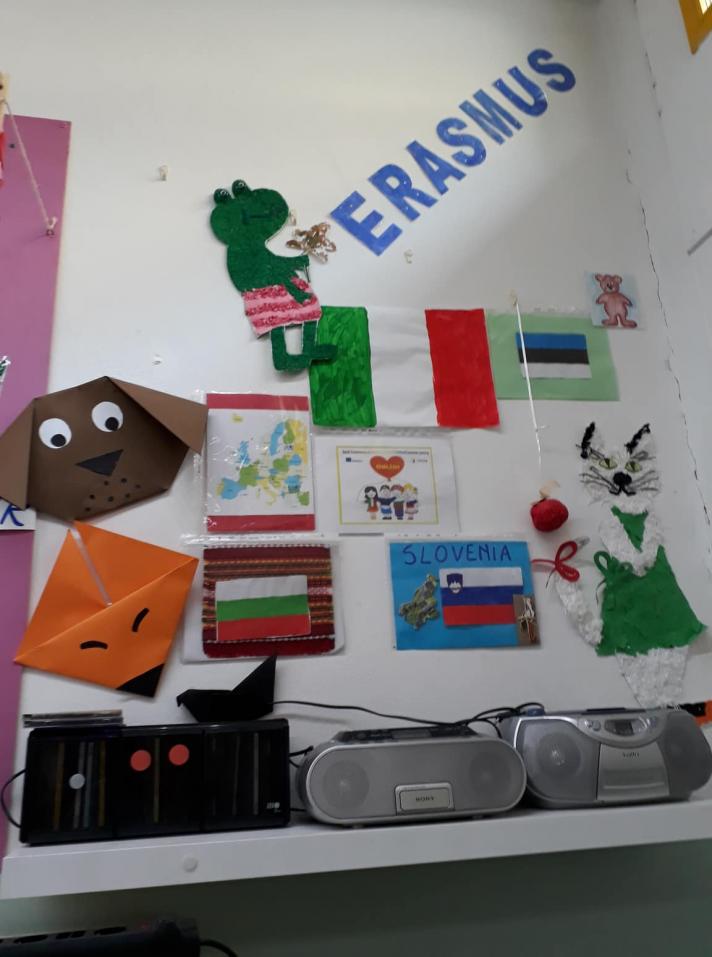Topic(s) addressed
The project’s main objective was the empowerment of educators’ and teachers’ professional competencies and skills in the learning of English, which included elements such as formative monitoring, the introduction of modern approaches to education, and improvement in the quality of preschool education. These priority areas aimed at the effortless and successful integration of children into the social environment, and the strengthening of their social competences in a world that is diverse, global, and multicultural. Topics addressed within this project consisted of new innovative curricula, education methods, and the development of training courses; the teaching and learning of foreign languages; and, creativity and culture.
Target groups
The project’s primary target group were preschool teachers and children, with participants having consisted of more than 1000 preschool children, teachers, parents, and representatives from various local, regional, and international associations, as well as from the municipalities and professional institutions of four countries (Slovenia, Estonia, Italy, and Bulgaria).
Methodologies
The project strengthened the social competencies of both children and professionals through multicultural and interdisciplinary learning, beginning with the acquisition and introduction of early foreign language teaching through games, singing, and dancing. Moreover, not only did professionals develop their respective competencies, they also introduced a number of new, innovative, and dynamic approaches into their personal work methods that were exchanged with project partners, such as formative monitoring, working with modern technology, new approaches to learning foreign languages, and ways to cooperate with parents, the local community, and external partners – all of which were highly appreciated by the project’s partners. An international conference was also organised which served as an opportunity for the exchange of good practices, with the project’s main output being an interactive electronic multimedia book containing a set of good (innovative) practices in early foreign language learning based on the cultures of participating organisations. This book, which contains authentic recordings of children involved in play and learning, further facilitated its use and development, which proved invaluable to preschool education.
Environments
ICT technology was used by project participants in both written and oral communication, as a means of learning support (through the use of interactive learning materials, robots, and various online games), in the recording and monitoring of results through formative monitoring exercises, and in the promotion and dissemination of the project’s results at local, national, and international levels. All of the materials, photos, and videos that were to be used by the project’s educators were safely and appropriately uploaded onto the eTwinning platform. The exchange of theoretical knowledge on early foreign language teaching was carried out in cooperation with the vocational education sector (Ljutomer Educational School) and the higher education sector (Faculty of Education, University of Maribor), which contributed to the formation of didactic guidelines in this field. The project and its results were presented at a number of international higher education conferences by Prof. Dr. Mihaela Brumen (an expert from the University of Maribor’s Faculty of Education.
Teachers
The project saw the implementation of various activities including team cooperation initiatives, the use of interdisciplinary approaches, the introduction of new approaches to regular work, and cooperation between different age groups. Said activities were retained even after the project’s completion, with a perceived increase in self-initiative among teachers that largely indicated the creation of innovative stories across different departments. The management structures of both the kindergarten and the school have also continued to support teachers in their expression of new ideas.
Impact
Undoubtedly, the project has imparted long-term positive impacts for the professional development of teachers. This was the first time that kindergarten staff had participated in such a project, which, through its many diverse and interdisciplinary activities, enabled them to acquire knowledge and competencies at levels far higher than they previously possessed. Many of the project’s activities are currently still being used in regular work, with a number of different materials (didactic, games, reading backpacks, and, dancing, singing, and story-telling activities) used on a daily basis. This is also true with regard to the use of digital competences and knowledge of a foreign language. Acquired knowledge and experience were advantageously used by teachers in the implementation of regular work, which was also supported by the local environment and children’s parents, with their activities presented at a number of international events such as eTwinning seminars and international conferences.
- Reference
- 2017-1-SI01-KA219-035506
- Project locations
- Slovenia
- Project category
- Early childhood education and care
- Project year
- 2021
Stakeholders
Participants
DG Zhelyazko Popnikolov
- Address
- Bulgaria
Ecole maternelle les Jardins, Vedène
- Address
- France
Istituto Comprensivo Dante Alighieri, Opera (MI)
- Address
- Italy
Preschool Põngerjas
- Address
- Estonia


